Smart socks on trial at Exeter dementia care home
- Published
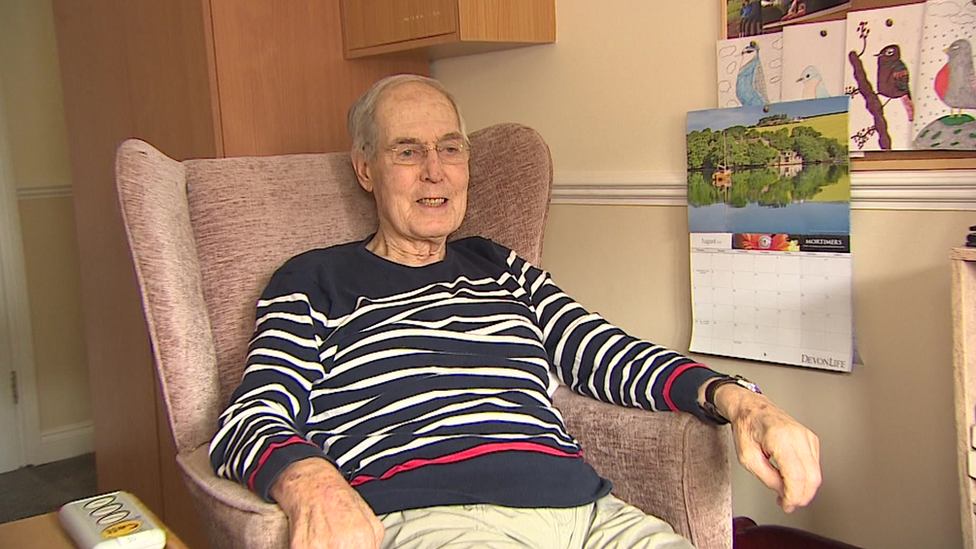
John Piper has been testing the socks
A pair of socks that can track levels of anxiety and distress in people with dementia is being tested in a care home in Exeter.
The Old Rectory is part of a University of Exeter trial to test the benefits of so-called Smart Socks.
The socks are a wearable technology that monitor heart rate, sweat levels and motion.
Project leaders said it was hoped they could prevent falls, as well as improve wellbeing and promote independence.
The first resident to be fitted with the socks is 83-year-old John Piper.
Mr Piper, a former electronics engineer, who has lived in the home since November 2022, is living with dementia and said he did not mind being a guinea pig.
"Anything that's simple and easy to do, and is improving our look at life as a whole, I'm happy with," he said.
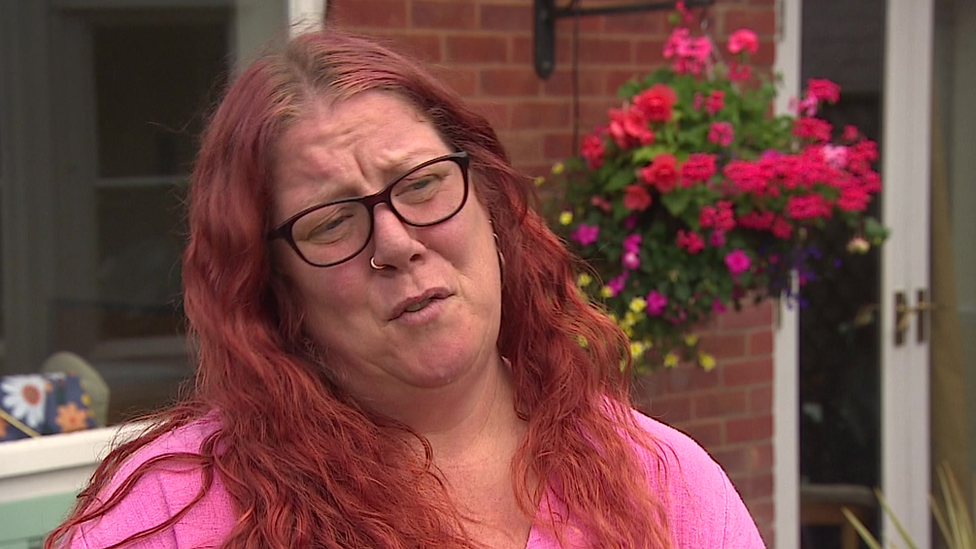
Care home manager Kerry Dempsey said anything that helped reduce anxiety levels was a "complete bonus"
The Old Rectory specialises in dementia, a condition that can be challenging to manage.
Its residents have a range of needs, including physical and cognitive impairments.
Manager Kerry Dempsey said any form of technology that helped people who struggle to communicate was very welcome.
She said: "Anything that would reduce a level of anxiety and therefore increase someone's wellbeing has to be a complete bonus."
The socks are the brainchild of Dr Zeke Steer, a specialist in robotics and artificial intelligence.
He created the technology after his great grandmother was diagnosed with dementia.
"Socks are a familiar item of clothing, and more likely to be tolerated than a wrist-worn device," he said.
"We also know that the foot is one of the best locations on the human body for measuring stress - due to the high density of sweat glands."
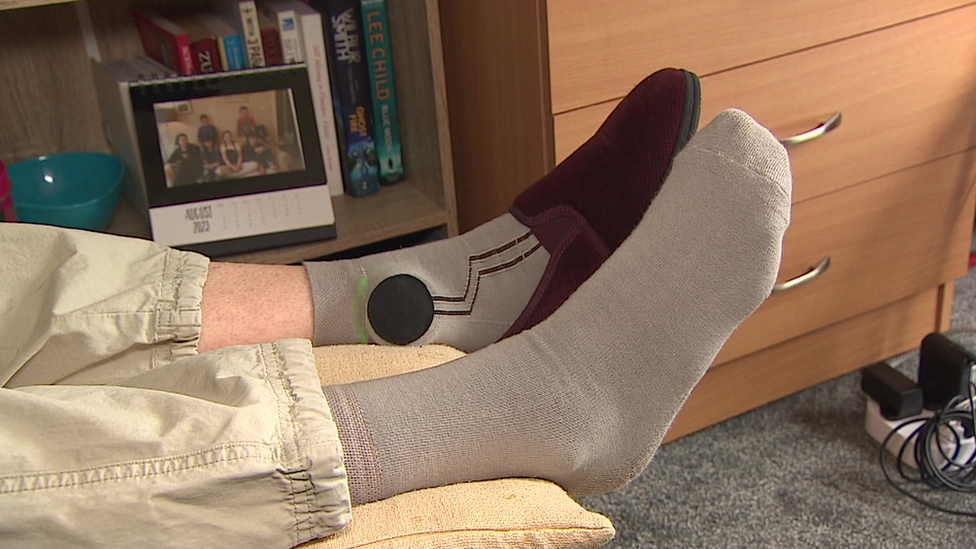
The socks contain sensors that send signals to an app, giving carers health updates
Sensors in the socks send signals to an app, which sends an alert to a carer if monitored levels are rising.
The early warning allows staff to intervene before it can escalate into distressed behaviour.
The university is collaborating with Dr Steer's company Milbotix to find out if the socks really do improve care.
Dr Byron Creese said: "Smart Socks address the huge clinical need for effective and safe management of agitation, pain and distress in dementia."
A small group of residents is also to be involved in a larger trial starting next month.

Follow BBC News South West on Twitter, external, Facebook, external and Instagram, external. Send your story ideas to spotlight@bbc.co.uk, external
Related topics
- Published16 July 2023
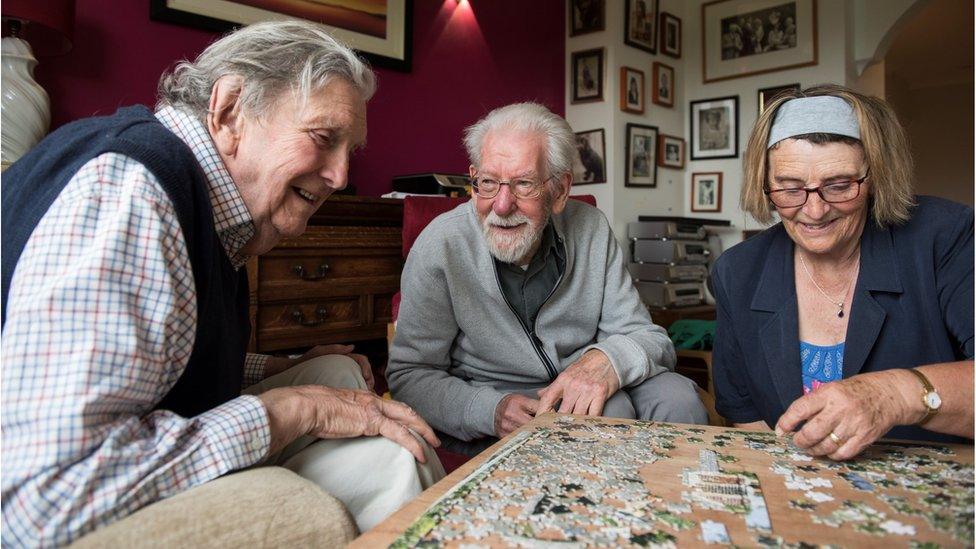
- Published21 June 2023
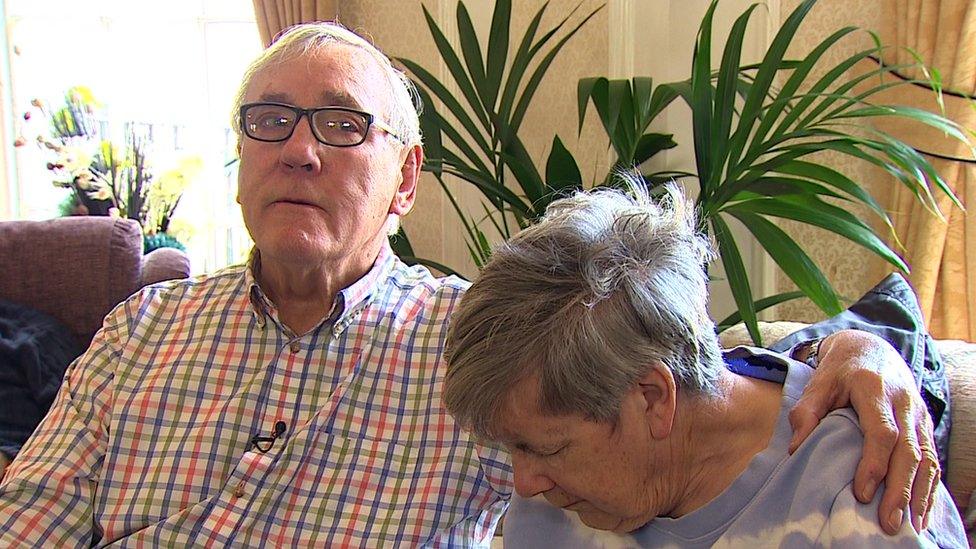
- Published20 March 2023
